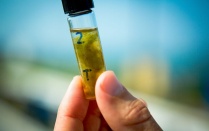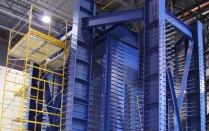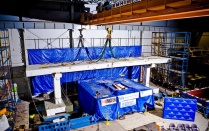
Kang Sun
PhD
Research Topics
Atmospheric chemistry; Remote sensing; Emission estimation; Instrument development.
Research interests
Atmospheric chemistry; Remote sensing; Emission estimation; Instrument development.
Current and Recent Projects
- A Satellite Data-Driven Framework to Quantify Sources and Lifetimes of Atmospheric Pollutants and Their Responses to the COVID-19 Pandemic
- MethaneSAT/MethaneAIR Science and Algorithms at UB
- Observational Data-driven Surface Concentrations Derived from Satellite Columns and Aircraft Profiles
- Development of long-term and consistent earth system data records of H2CO, CHOCHO and H2O from multi-satellite UV/Visible spectra
- The 'System of Systems' Solutions for Commercial Field-Level Quantification of Soil Organic Carbon and Nitrous Oxide Emission for Scalable Applications (SYMFONI)









